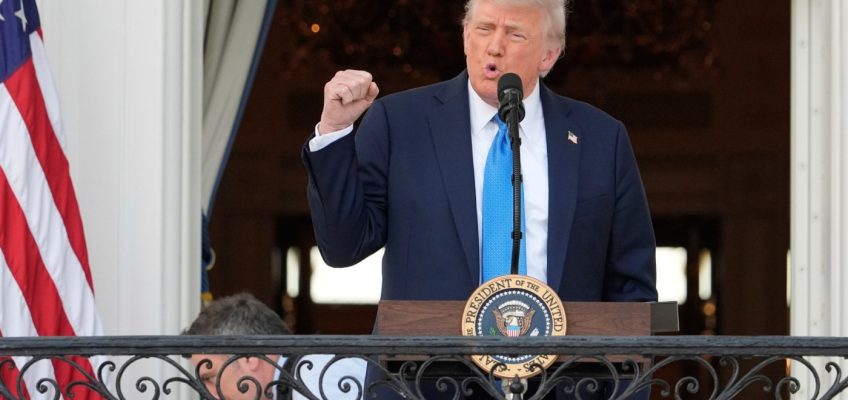By CHRIS MEGERIAN and FARNOUSH AMIRI, Associated Press
WASHINGTON (AP) — President Donald Trump is resurrecting the travel ban policy from his first term, signing a proclamation Wednesday night preventing people from a dozen countries from entering the United States.
The countries include Afghanistan, Burma, Chad, Republic of the Congo, Equatorial Guinea, Eritrea, Haiti, Iran, Libya, Somalia, Sudan and Yemen.
In addition to the ban, which takes effect at 12:01 a.m. Monday, there will be heightened restrictions on visitors from Burundi, Cuba, Laos, Sierra Leone, Togo, Turkmenistan and Venezuela.
“I must act to protect the national security and national interest of the United States and its people,” Trump said in his proclamation.
Related Articles
Congressional letter obtained by AP outlines drastic job cuts expected at Voice of America
Army leaders defend parade and border spending as Congress presses for answers
Justice Department sues Texas over in-state tuition for students without legal residency
House Oversight Committee expands inquiry into Biden’s mental condition and final acts in office
Judge says migrants sent to El Salvador prison must get a chance to challenge their removals
The list results from a Jan. 20 executive order Trump issued requiring the departments of State and Homeland Security and the Director of National Intelligence to compile a report on “hostile attitudes” toward the U.S. and whether entry from certain countries represented a national security risk.
During his first term, Trump issued an executive order in January 2017 banning travel to the U.S. by citizens of seven predominantly Muslim countries — Iraq, Syria, Iran, Sudan, Libya, Somalia and Yemen.
It was one of the most chaotic and confusing moments of his young presidency. Travelers from those nations were either barred from getting on their flights to the U.S. or detained at U.S. airports after they landed. They included students and faculty as well as businesspeople, tourists and people visiting friends and family.
The order, often referred to as the “Muslim ban” or the “travel ban,” was retooled amid legal challenges, until a version was upheld by the Supreme Court in 2018.
The ban affected various categories of travelers and immigrants from Iran, Somalia, Yemen, Syria and Libya, plus North Koreans and some Venezuelan government officials and their families.
Trump and others have defended the initial ban on national security grounds, arguing it was aimed at protecting the country and not founded on anti-Muslim bias. However, the president had called for an explicit ban on Muslims during his first campaign for the White House.
Amiri reported from the United Nations.


Leave a Reply